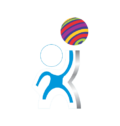8 Tips for Learning a New Language Quickly
Table of Contents
Toggle
Learning a new language opens doors to a world of opportunities, enriching both personal and professional aspects of life. The journey of language acquisition not only enhances cognitive abilities but also fosters cultural understanding and empathy. However, it’s essential to acknowledge the challenges that accompany this endeavour, particularly the difficulty of mastering a new language quickly. These challenges can include grasping unfamiliar grammar structures, expanding vocabulary, and achieving proficiency in pronunciation and fluency. Despite these hurdles, with determination and effective strategies, language learning becomes an achievable and rewarding pursuit.
Set Clear Goals
Setting clear and achievable language learning goals is paramount to success in mastering a new language. By establishing specific, measurable, attainable, relevant, and time-bound (SMART) objectives, learners can track their progress and stay motivated. Whether aiming to become conversational in a certain timeframe or attaining proficiency for travel or work purposes, setting goals provides direction and clarity. Tips for setting SMART goals include breaking down larger objectives into smaller, manageable tasks, prioritizing areas of improvement, and celebrating milestones along the way.
Find a Language Learning Method that Works for You
Exploring different language learning methods is crucial to finding an approach that aligns with individual learning styles and preferences. From immersive experiences to structured online courses and language exchange programs, there are diverse avenues to explore. By experimenting with various methods, learners can identify what resonates best with them, whether they thrive in immersive environments, prefer self-paced learning online, or benefit from interactive group settings. Flexibility and adaptability in selecting a method cater to diverse learning needs and maximize learning outcomes.
Build a Strong Vocabulary
Vocabulary acquisition is a cornerstone of language learning, facilitating effective communication and comprehension. Employing strategies such as using flashcards, reading extensively, and engaging in conversations with native speakers accelerates vocabulary growth. By incorporating vocabulary-building activities into daily routines, learners can reinforce newly acquired words and phrases. Additionally, exposure to diverse contexts and authentic language usage enhances retention and expands lexical knowledge, paving the way for greater fluency and proficiency.
Practice Regularly
Consistent practice is key to language proficiency, allowing learners to internalize grammar rules, refine pronunciation, and enhance comprehension skills. By integrating language practice into daily routines, such as dedicating time for study, utilizing language learning apps, and engaging in conversational practice, learners reinforce their language skills. Regular exposure to the target language through listening, speaking, reading, and writing activities fosters confidence and fluency over time. Consistency in practice cultivates a habit of learning and contributes to sustained progress in language acquisition.
Focus on Listening and Speaking Skills
Developing listening and speaking skills is fundamental to effective communication and language acquisition. Actively engaging with authentic audio materials, such as podcasts and music, exposes learners to natural language usage and accents. Likewise, participating in conversations with native speakers or language partners enhances oral proficiency and cultural understanding. By immersing oneself in real-life language contexts, learners hone their listening comprehension and speaking fluency, bridging the gap between language acquisition and practical communication.
Utilize Technology and Language Learning Resources
Technology plays a pivotal role in modern language learning, offering a myriad of tools and resources to support learners’ journeys. Language learning apps, online courses, and interactive websites provide accessible and engaging platforms for practice and skill development. Additionally, pronunciation tools and language exchange platforms facilitate peer feedback and conversation practice, complementing traditional learning methods. Embracing technology enhances the efficiency and effectiveness of language learning, empowering learners to tailor their experiences to their needs and preferences.
Embrace Mistakes and Learn from Them
Mistakes are an inevitable part of the language learning process and serve as valuable opportunities for growth and improvement. By embracing errors with a positive mindset, learners cultivate resilience and perseverance. Seeking feedback from peers or instructors, engaging in self-reflection, and maintaining a sense of humour about mistakes fosters a supportive learning environment. Each misstep offers insights into areas for improvement, reinforcing learning and progress. Embracing mistakes as stepping stones rather than setbacks empowers learners to approach language acquisition with confidence and resilience.
Immerse Yourself in the Culture
Immersing oneself in the culture associated with the target language deepens linguistic proficiency and cultural understanding. Activities such as watching movies, reading literature, listening to music, and participating in cultural events provide immersive experiences that complement formal language study. Exposure to authentic cultural contexts enhances language comprehension and fosters cultural empathy. By embracing the richness of the target language’s culture, learners develop a holistic understanding of language and its sociocultural nuances.
Conclusion
learning a new language is a trans formative journey that requires dedication, persistence, and effective strategies. By setting clear goals, exploring diverse learning methods, and prioritizing vocabulary acquisition and regular practice, learners can accelerate their language proficiency. Focusing on listening and speaking skills, leveraging technology and language learning resources, and embracing mistakes as opportunities for growth enhance the learning experience. Immersing oneself in the culture associated with the target language enriches linguistic proficiency and fosters cultural empathy. With commitment and the right approach, mastering a new language quickly is an achievable and rewarding endeavour.”
